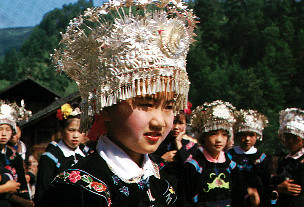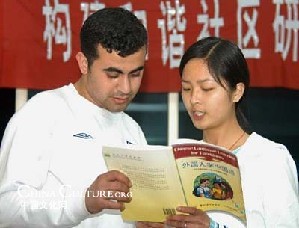Tibetan Opera Boasts Prosper Development
Tibetan Opera Tibetan opera is an ancient traditional art form of Chinese ethnic minority. Hailed as "the living fossil of traditional Tibetan culture", it boasts a history of more than 600 years -- about 400 years longer than Peking Opera. It combines folk dance, singing with vocal performance. Tibetan opera, wide in content and various in types of literature, has long
Tea Wares Develop in Different Dynasties
A set of tea wares Chinese people love drinking tea. A pot of good tea is made by tea wares of good quality. Therefore, to better understand Chinese tea culture, one must have some knowledge abouy tea wares. Tea wares consist of mainly teapots, cups, tea bowls and trays, etc. Tea wares have been used for a long time in China. The unglazed
A Basic Knowledge about China Pottery
Pottery warriors Pottery may be the oldest artwork of mankind. Early in the Neolithic Age (more than 8,000 years ago), people began mixing clay and water then baking it until it held its shape. That is what ancient people call 'pottery'. With it, they create various vessels and tools to improve the quality of life. Over thousands of years, pottery became dominant wares
China’s Four Treasures of Study Famous in the World
Four treasures of study Among the various tools of calligraphy, writing brush is peculiar to China. The brushes are varied, and white goat's hair, black rabbit's hair and yellow weasel's hair are three major types. In terms of the function of tip, the brushes are classified into three groups: "Hard", "Soft" and "Both". The handle is made of not only bamboo,
China Crafts Diverse in Styles
Chinese bamboo craftsAs a gem of Chinese art and culture, Chinese Crafts, also named folk crafts, refer to artistic handicrafts mainly produced by hand. Chinese crafts include both traditional cultural artworks and daily utensils, having a strong influence on the people's livelihood. Working people use local materials to express their appreciation of beauty. China is made up
A Brief Look at China National Museum
Main gate of China National Museum National Museum of China is located on the east side of Tian'an Men Square in Beijing. It is the biggest comprehensive history museum in China. Through display of both material and non-material collections and exhibits, it elaborates the history created by Chinese ancestors. The National Museum is built on the twin
China’s National Museum will Open Partly in Sept.
China's National Museum, under expansion for nearly two years, will open partly to the public in September, while the whole project is expected to be finished by May 2010. China's National Museum of Fine Arts The museum will keep its northern section open to provide a grand exhibition about rejuvenation of China in September as part of activities to
Magic Face Change is Soul of Sichuan Opera
Sichuan Opera, ChengduSichuan Opera (Chuan Ju) originated at the end of the Ming (1368-1644) and the beginning of the Qing Dynasty (1644-1911). With immigrants flooding into Sichuan, different dramas were brought in to blend with the local dialect, customs, folk music and dances. Gradually, brisk humorous Sichuan Opera, reflecting Sichuan culture, came into
Shadow Play still Popular in Some Areas
Shadow play, a traditional Chinese folk art with a history of more than 2,000 years, has embarked on a path towards revival after a period of notable decline, thanks to conservation efforts and lasting interest in rural areas. Known as a precursor of modern cinema, shadow play is a kind of drama in which silhouettes made of hard paper and buffalo and donkey hide are projected onto a white screen.
Origin and Tools of Ink & Wash Painting
Ink and wash painting is an East Asian type of brush painting, also known as wash painting. The Chinese name is shui-mo hua. Wash painting developed in ancient China during the Tang Dynasty. Wang Wei is generally the typical painter who applied color to existing ink and wash paintings. The art was further developed into a more polished style during the Song Dynasty.
Total: 159 Items This is 3 Page( 10 Items/Page) Result Page: 16 Pages First Previous Next LastArt
 more
moreU.S. space shuttle Discovery lifts
The space shuttle Discovery takes off from launch pad

Obama administration vows to break

Irving dual-language students
Melissa Reyna (center) and Johanna Sanchez

Dev, Denny to quizz for charity
Director Danny Boyle (R) holds his Oscar for

Custom
 more
moreProvinces Site
Chinese Medicine
 more
more









